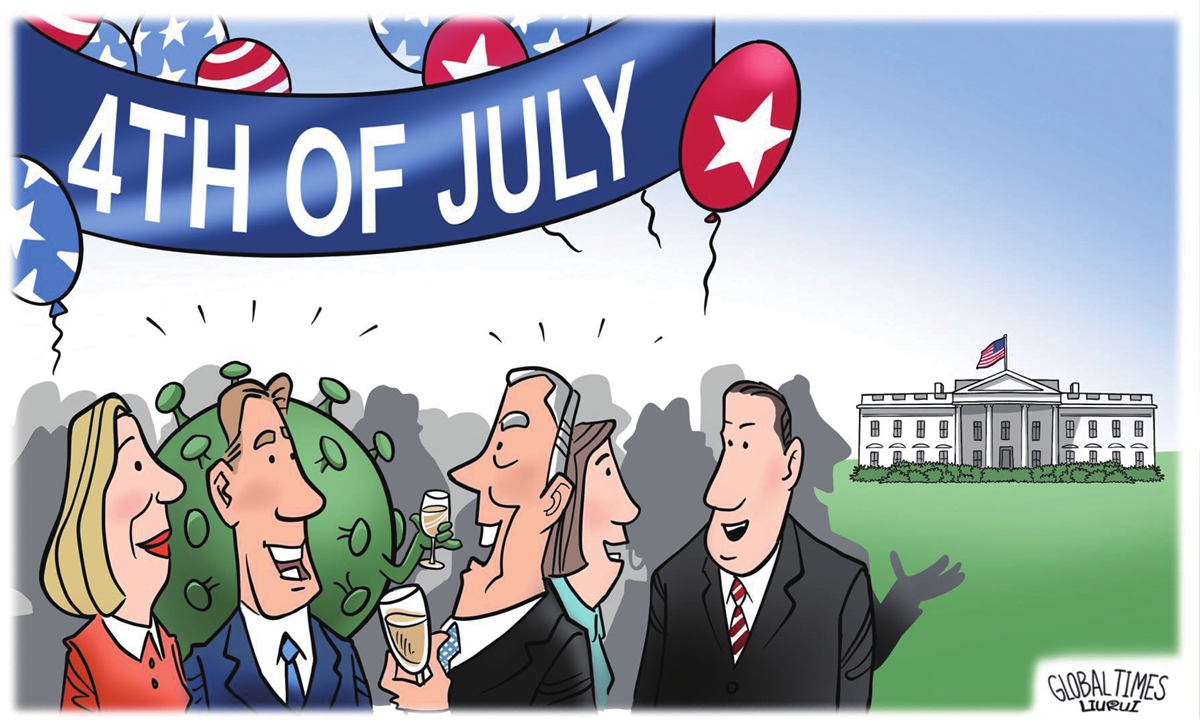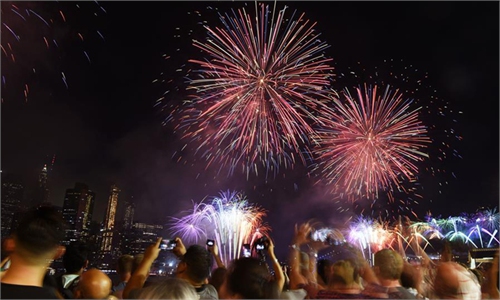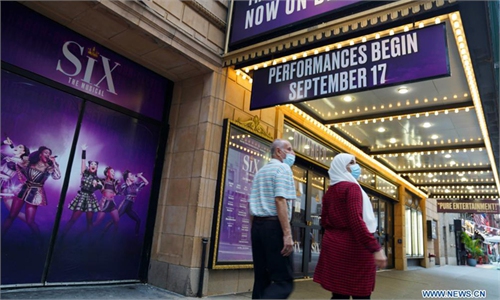US celebrates Fourth of July amid uncertainties, anxiety: Global Times editorial

Illustration: Liu Rui/GT
The Fourth of July is Independence Day in the US. The White House will host a celebration for thousands of essential workers and military families on July Fourth on the South Lawn to showcase the Democratic administration's success in fighting the epidemic and recovering the economy. But there has been plenty of criticism around such a party as about 12,000 new cases have been confirmed and more than 200 people have died in a single day. About a quarter of the newly infected people in the US are victims of the Delta variantThe Biden administration has been desperately searching for US achievements today like trying to sift bronze from a pile of dirt. However, the US is facing many uncertainties on the arrival of Independence Day. Less than half the total population in the US has been fully vaccinated while the expansion of the vaccination ratio has encountered practical difficulties by the low willingness to be vaccinated in the rest of the population. The transmission rate of the Delta variant is very high, and the efficacy of the existing vaccines is put to the test. In addition, after several rounds of stimulus, the US has accumulated significant risks, including inflation. Many are concerned about the true strength of the country's recovery after it pulled up the seedlings to help them grow.
After being established as a nation for 245 years, now the US is in its least confident stage. The malpractice of party politics has seriously eroded the efficiency of the US democratic system. The race issue is almost unbridgeable, and its escalation shows certain irreversibility. Washington's inability to deal with a public crisis has been exposed in the epidemic, and it now can only rely on vaccines. But this policy is a gamble, because scientists generally believe that at least for now, vaccines alone cannot end the epidemic.
And the fact that the White House party for a thousand people will be held in the absence of progress or definitive conclusions about the rescue effort in the Miami building collapse shows the real indifference of the US disguised by its humanitarian rhetoric. More than a hundred people are still missing under that huge pile of debris, but the country has no intention of confirming their situation even a week later. The country enters a season of joy spearheaded by the president when it is not even conformed whether the missing are alive.
The world has seen clearly that the US is in fact a country where social Darwinism prevails. Capital is like its locomotive. In the business and first-class carriages sit the elites of the country, in the rear are some of the middle-class, and some of the most crowded and shabby carriages belong to the bottom of society. Some of the poorest people even sit outside or on the top of the carriages. The US belongs to the elite. It only takes certain care of the middle-class. And the elites are telling the poor of the US that they are allowed to stay on this train after all, and that in itself is happiness for people like you.
This interpretation worked when only the US and bits of the West were entering modernization. But as some emerging economies, notably China, developed, US confidence in its path began to falter as never before. The US has become a superpower whose growth has stalled, extremely unequal, unable to deal with major crises, whose advantage has largely depended on its past legacy. Now the country is starting to worry about the future, anxiously calculating the point at which it will be overtaken by China in terms of economic aggregate.
The US still maintains certain power to rally countries internationally, but such rallying power is realized through coercion, even intimidation, rather than through convincing allies and developing countries. In the past, the US had sufficient capital and resources to make global public goods, function as the world's economic engine and be the top international aid provider. But now the US has become increasingly selfish, openly using international tools that it controls to expand American self interests.
All this may be reasons that prompted Biden government to launch a huge party at the White House despite the virus risks and encourage other places to hold celebrations. They highlight "achievement," but downplay the hidden worries. Biden's governance style is similar to his predecessor Donald Trump.
The US undoubtedly faces the most challenges on this Independence Day. It is believed the Biden government does not care about how to best deal with these challenges, but how to give voters the best impression, because their focus is on the midterm elections that will be held next year.


